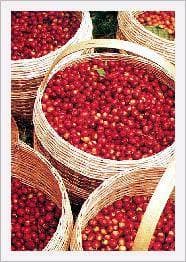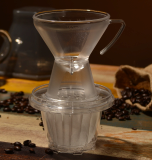Barako Coffee
Negotiable Min Order Quantity Unit
- Required Quantity
-
- Place of Origin
- Payment Terms
- Negotiable
- Production method
- Negotiable
- Shipping / Lead Time
- Negotiable / Negotiable
- Keyword
- Category
- Coffee & Tea Sets
- Country / Year Established
-
 South Korea
/
South Korea
/
- Business type
- Others
- Verified Certificate
-
17


| Product name | Barako Coffee | Certification | - |
|---|---|---|---|
| Category | Coffee & Tea Sets | Ingredients | - |
| Keyword | - | Unit Size | - |
| Brand name | - | Unit Weigh | - |
| origin | Stock | - | |
| Supply type | - | HS code | - |
Product Information
Barako Coffee & Its Story . . .
The Filipino Coffee Store proudly sells this great product.
But most people would ask: What is this "Barako" coffee? What is the
story behind it? Why haven't I heard of it before?
Barako is a rare and exotic coffee grown primarily in the Philippines . "Barako"(also spelled "Baraco") has become a generic name for all coffee from the province of Batangas, but real Barako is actually Philippine Liberica and is known for its particularly strong taste, powerful body, and a distinctly pungent aroma.
The beans are indigenous to the Philippines, though the trees can also be found in Vietnam and Indonesia. Of the four identified species of coffee (Robusta, Excelsa, Arabica and Liberica), Liberica has the largest cherries and therefore, bigger beans. Liberica is now predominantly grown in the province of Cavite .
However, this coffee is in danger of becoming extinct. The reason why this coffee has become rare stems from the plight of the once thriving Philippine coffee industry.
The Plight of the Philippine Coffee Industry
Ten years ago, the Philippines used to earn at least US$150 million a year in coffee exports. Now, the Philippines has become a net importer of coffee. it makes only around $500,000 a year from coffee, and only 10% of the yearly harvest is exported.
What happened? Many farmers cut their coffee trees, including Barako, and switched to other crops. The main reason for switching is farmers in the Philippines do not have control over coffee prices. Prices are influenced by large exporting countries such as Brazil. A coffee farmer cannot be guaranteed of a profit. Thus other profitable crops with more stable prices have become more attractive to raise. Other reasons include technology problems, lack of good roads, and the recent lifting on the ban on coffee imports.
In the last ten years, the Philippines lost about 80,000 hectares of coffee farms. Sixty to eighty thousand coffee families have continued to farm coffee, but their numbers are dwindling.
Saving the Barako and the Philippine Coffee Industry
The cause to help coffee families and making coffee a major Philippine export earner has been taken up by the Figaro Foundation. The Foundation, through its communication campaigns, has made more and more people aware of the plight of the Philippine coffee industry. As a result, many land holders have switched to coffee, or turned idle land into new coffee farms.
In 2000, Barako became the focus of the Foundation's efforts. Barako is an exotic coffee, and not as volatile to price swings in world coffee prices. It has a big demand from Filipinos. As a result, the nearly extinct Barako has become a favorite at local coffee shops, restaurants, and homes.
B2B Trade
| Price (FOB) | Negotiable | transportation | - |
|---|---|---|---|
| MOQ | Negotiable | Leadtime | Negotiable |
| Payment Options | Negotiable | Shipping time | Negotiable |






































